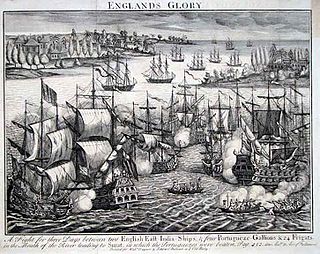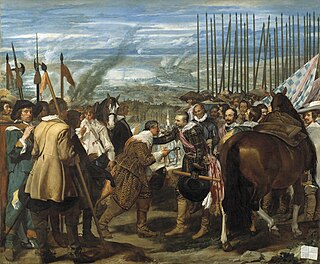
| |||
|---|---|---|---|
| +... | |||
| 1625 in science |
|---|
| Fields |
| Technology |
| Social sciences |
| Paleontology |
| Extraterrestrial environment |
| Terrestrial environment |
| Other/related |
The year 1625 in science and technology involved some significant events.

| |||
|---|---|---|---|
| +... | |||
| 1625 in science |
|---|
| Fields |
| Technology |
| Social sciences |
| Paleontology |
| Extraterrestrial environment |
| Terrestrial environment |
| Other/related |
The year 1625 in science and technology involved some significant events.

1608 (MDCVIII) was a leap year starting on Tuesday of the Gregorian calendar and a leap year starting on Friday of the Julian calendar, the 1608th year of the Common Era (CE) and Anno Domini (AD) designations, the 608th year of the 2nd millennium, the 8th year of the 17th century, and the 9th year of the 1600s decade. As of the start of 1608, the Gregorian calendar was 10 days ahead of the Julian calendar, which remained in localized use until 1923.

1617 (MDCXVII) was a common year starting on Sunday of the Gregorian calendar and a common year starting on Wednesday of the Julian calendar, the 1617th year of the Common Era (CE) and Anno Domini (AD) designations, the 617th year of the 2nd millennium, the 17th year of the 17th century, and the 8th year of the 1610s decade. As of the start of 1617, the Gregorian calendar was 10 days ahead of the Julian calendar, which remained in localized use until 1923.

1602 (MDCII) was a common year starting on Tuesday of the Gregorian calendar and a common year starting on Friday of the Julian calendar, the 1602nd year of the Common Era (CE) and Anno Domini (AD) designations, the 602nd year of the 2nd millennium, the 2nd year of the 17th century, and the 3rd year of the 1600s decade. As of the start of 1602, the Gregorian calendar was 10 days ahead of the Julian calendar, which remained in localized use until 1923.

1612 (MDCXII) was a leap year starting on Sunday of the Gregorian calendar and a leap year starting on Wednesday of the Julian calendar, the 1612th year of the Common Era (CE) and Anno Domini (AD) designations, the 612th year of the 2nd millennium, the 12th year of the 17th century, and the 3rd year of the 1610s decade. As of the start of 1612, the Gregorian calendar was 10 days ahead of the Julian calendar, which remained in localized use until 1923.

1625 (MDCXXV) was a common year starting on Wednesday of the Gregorian calendar and a common year starting on Saturday of the Julian calendar, the 1625th year of the Common Era (CE) and Anno Domini (AD) designations, the 625th year of the 2nd millennium, the 25th year of the 17th century, and the 6th year of the 1620s decade. As of the start of 1625, the Gregorian calendar was 10 days ahead of the Julian calendar, which remained in localized use until 1923.
The year 1808 in science and technology involved some significant events, listed below.
The year 1874 in science and technology involved some significant events, listed below.

The year 1791 in science and technology involved some significant events.
The year 1790 in science and technology involved some significant events.
The year 1855 in science and technology involved some significant events, listed below.
The year 1799 in science and technology involved many significant events, listed below.
The year 1847 in science and technology involved some significant events, listed below.
The year 1800 in science and technology included many significant events.
The year 1852 in science and technology involved some significant events, listed below.
The year 1704 in science and technology involved some significant events.

The year 1610 in science and technology involved some significant events.
The year 1929 in science and technology involved some significant events, listed below.
Johann, typically a male given name, is the German form of Iohannes, which is the Latin form of the Greek name Iōánnēs (Ἰωάννης), itself derived from Hebrew name Yochanan in turn from its extended form Yehochanan, meaning "Yahweh is Gracious" or "Yahweh is Merciful". Its English language equivalent is John. It is uncommon as a surname.

Johann Rudolf Glauber was a German-Dutch alchemist and chemist. Some historians of science have described him as one of the first chemical engineers. His discovery of sodium sulfate in 1625 led to the compound being named after him: "Glauber's salt".